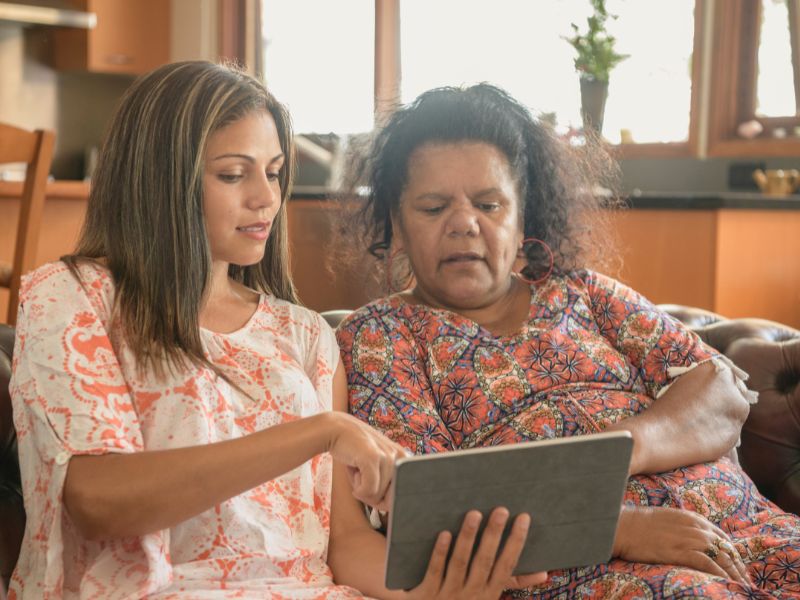
Below you will find information to help you support your loved one with their health challenges.
There are three basic things to remember:
- They are experiencing trauma
- They require obscene amounts of rest
- Be mindful of their limitations

Acknowledgement
The single most important thing you can do is to acknowledge that your loved one is experiencing a health challenge, even though they may appear otherwise healthy.
Many of their symptoms will be unfamiliar and unnerving and their sensations may be difficult to explain.
For example, each of us is familiar with “tiredness”. However, those who are battling with “brain fog” or “exercise intolerance” experience a totally new type of tiredness that is impossible to explain in the context of known experiences.
For this reason, please don’t dismiss their symptoms or try to brush them off. They understand their body best, and they are trying to explain to you that something is very wrong. Adjusting your expectations around what they are able or unable to do will be a daily process as they try to reclaim their health

Be their brain
Many patients with an injury from the COVID-19 vaccines suffer from a variety of cognitive impairments and exhaustion. For these reasons, they may be finding it difficult to undertake normal tasks such as multitasking, problem solving, concentration, communication, decision-making, remembering appointments, etc.
It may be helpful if you can undertake some tasks for them, with their permission. For example, booking medical appointments and reminding them of these appointments, filling out forms, setting alarms on their phones to remind them of tasks to do, speak with Centrelink or doctors on their behalf, read out correspondence to them, reply to emails on their behalf, etc.

Environment and Diet
There are many things that can slow recovery from a vaccine injury. This includes excessive stimulation, persistent inflammation and a lack of adequate rest.
Many of the vaccine injured are finding that normal tasks such as shopping, driving, family gatherings, but also the emotional overload of television shows or concert music can be a source of excess neurological stimulation, impacting their nervous system and physical wellbeing. Such experiences can exacerbate symptoms and quickly push someone to the limit of their physical and mental tolerance.
The first several months are a critical time for healing and a speedy recovery. The more someone can rest and commit to less activity (of any kind) in this period, the greater chance they have of seeing progressive recovery.
In addition to medical solutions, dietary changes can be very helpful and are (relatively) easy. It is known that histamines, gluten, sugar, alcohol and caffeine can exacerbate the inflammation that we are already dealing with. To adjust your eating patterns you may wish to read up about the science of anti-inflammatory and low-histamine diets. You may also look into the research on (supervised) fasting and autophagy.

Mental health
In addition to the health trauma being experienced (which can itself facilitate mental health challenges), various social and medical attitudes towards vaccine injury have led many vaccine injured people to develop PTSD (post traumatic stress disorder) and anxiety.
If this isn’t bad enough, the vaccine injury itself is suspected of manifesting new onset cognitive problems via a number of physiological processes.
It is important that you keep an eye on your loved one, and their mental state, and make sure they are receiving the psychological support and understanding that they need. Having a loving and supportive family environment may still not be enough for them to battle the many unknowns that they are facing.
It may be helpful for them to connect with other vaccine injured individuals, for example via one of the online support groups. Additionally, with their consent, you may offer to help them seek out a mental health professional and book an appointment.
Suicide is a very real risk for those who are vaccine injured, and our community has lost too many people to this terrible affliction already. We can’t stress enough the importance of supporting your loved one and helping them access all of the resources they need to progress through the illness and find solutions that work for them.

Get extra support
The challenge of needing to support a loved one with a chronic illness can be extremely taxing. Especially if they are unable to undertake their usual household/family activities and domestic duties, or unable to work.
If they are eligible for unemployment benefits and their doctor can provide a medical certificate explaining they are unable to work, there is the possibility to receive up to three months of JobSeeker allowance. If one GP won’t do this do not give up immediately, as another might recognise their injury and assist with the paperwork. For others, this has proven difficult without a clear diagnosis.
You may be in a position to ask family members (parents, etc) to help with meals, finances, etc.
There may also be other support available through your local or state government, or other service providers. State government funded schemes to support people living with different challenges. These schemes can provide support services such as counselling, household cleaning, gardening, and travel assistance. Here are links to the Carer groups around the country:

Identifying an injury
Generally speaking, a new onset illness may be a suspected vaccine injury if it began within days or weeks of a vaccination and there are no other confirmed causes. For some people, however, symptoms have appeared much later than this. It is best to keep a record of the onset of symptoms and the person’s itinerary to rule out any other infections or causes for when the case is discussed with medical doctors.
Keep in mind that there is no medical test that will give a definitive answer to this problem of injury identification, and symptom sequalae.
Also, the list of ongoing symptoms being reported as adverse reactions to the COVID-19 vaccines is very long. In part this is due to the underlying nature of what is causing these symptoms – likely it is more than one process that can manifest in a huge variety of different ways throughout the body (e.g. dysautonomia or demyelination involve many components).
Genetic factors may be involved in reaction risk profiles. For example, people with MTHFR gene mutations and Ehlers-Danlos Syndrome appear overrepresented among the injured. For others, underlying nutritional status (low vitamin D, Bs, folate), and comorbidities may be involved. Much more research is required to develop this knowledge, increase the safety profile and enable proper informed consent for the vaccines. In the meantime, you can see React19’s patient-led surveys on common persistent symptoms.
If your loved one has been struggling for some time with new symptoms since their COVID-19 vaccinations, their symptoms could be due to the vaccine. For many of us, it has taken a series of medical appointments for our symptoms to be investigated more thoroughly.
